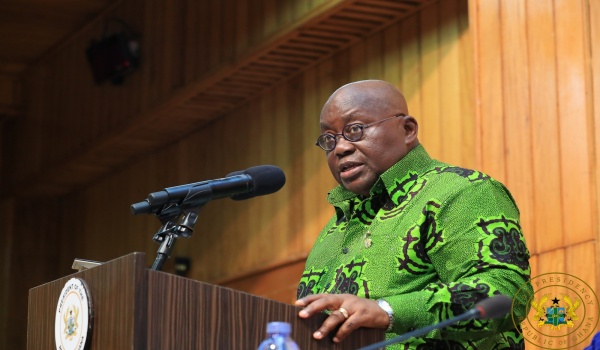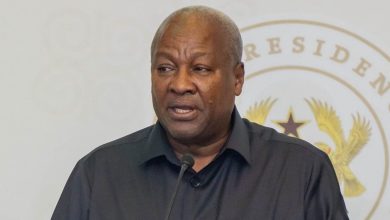NPP won 2020 elections hands down – Nana Addo

President Nana Addo Dankwa Akufo-Addo has insisted that the New Patriotic Party (NPP) won the December 2020 election despite the legal challenge against the outcome of the polls.
Nana Akufo-Addo says the NPP has the support of the majority of Ghanaians
Speaking at a meeting with the leadership of the party in the Greater Accra Region, he said “the NDC has been making a lot of noise that they won the elections. One moment they claim they gained 139 of the parliamentary seats, another they say 145. They are not sure as to how many. All these claims turn out to be false”.
He said the NDC has never been the people’s choice after former President Jerry John Rawlings ended his term in office.
“We should remember that ever since Jerry John Rawlings left the presidential scene of politics in our country, no NDC presidential candidate has won more than 50 percent of the votes. His successor Mills, in his first-round against Kufuor, had 44%, second round, 47%. He gained the same figures in his second run. In 2008, after 3 rounds, he got 50.03%. Mahama, in 2012 got 50.7%, in 2016 he got 44%, in 2020 he got 47% of the votes.”
“What these figures tell us is that whenever the members of the NPP put our heads together, we win. The majority is with us. So let us be very clear in our minds. Our opponents with all the shouting, do not have the support of the majority of the people.”
“The future of Ghana and this country is in our [NPP] hands and is dependent on our actions,” he added.
NDC challenges results of 2020 elections in Supreme Court
The 2020 Presidential Candidate for the NDC, John Mahama, and his party rejected the 2020 presidential election result describing it as flawed and have refused to recognize Nana Akufo-Addo as President.
He argues that neither he nor President Akufo-Addo attained a clear majority because of the omission of the Techiman South constituency from the provisional declaration of results by Ghana’s Electoral Commission.
According to the Electoral Commission, President Akufo-Addo garnered 51.59 percent of the votes while Mr. Mahama got 47.37 percent.
He is now asking the Supreme Court to order a re-run of the presidential election for him and the incumbent.
Following changes to election adjudication guidelines, the petition hearing is expected to last for at most 42 days; a massive reduction from the eight-month-long hearing in 2012 when President Akufo-Addo, then in opposition, unsuccessfully challenged his election defeat to Mr. Mahama.
The court is expected to give judgment on Mr. Mahama’s petition by February 10, the final day in the 42-day timeline.
President Akufo-Addo is proceeding with his transition and has described the election petition as “incompetent, frivolous and vexatious” in a 12-page response.
His legal team also argued that the claims made by Mr. Mahama “are not supported by the facts pleaded in the Petition”.
The Electoral Commission also filed its preliminary objection to Mr. Mahama in a 10-page response and acknowledged the possibility of errors but said the possible discrepancies would not have any significant effect on the final election results.
It also said Mr. Mahama in his petition erroneously depended on the total number of votes cast to make his case as being the total number of valid votes cast, an error which was inadvertently mentioned by the EC Chairperson during the declaration of the presidential result but was later corrected in a press release.
The commission and President Akufo-Addo, both sued by Mahama, have thus asked the Supreme Court to dismiss the petition.










